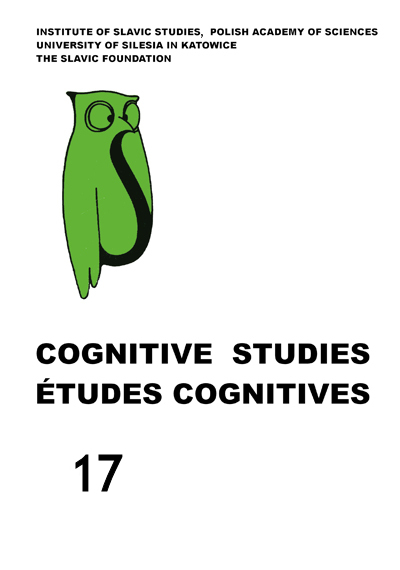When soul is lost in translation: Metaphorical conceptions of soul in Dostoyevsky’s original Братья Карамазовы (The Brothers Karamazov) and its translations into Polish, Croatian and English
When soul is lost in translation: Metaphorical conceptions of soul in Dostoyevsky’s original Братья Карамазовы (The Brothers Karamazov) and its translations into Polish, Croatian and English
Author(s): Julia Ostanina-Olszewska, Kristina S. DespotSubject(s): Language studies, Comparative Linguistics, Cognitive linguistics, Russian Literature, Translation Studies
Published by: Instytut Slawistyki Polskiej Akademii Nauk
Keywords: conceptual metaphor theory; parallel corpus; concept of soul; metaphorical mappings; metaphor and translation; cultural variation; linguistic variation;
Summary/Abstract: Given that our understanding of such an abstract concept as soul is almost purely metaphorical, this paper provides a comparative cross-linguistic analysis of the system of metaphorical conceptions of soul in Dostoyevsky’s original Братья Карамазовы (The Brothers Karamazov) and its Polish, Croatian and English translations. Special attention is paid to those metaphors that are translated differently between the various translations, either in conceptual or linguistic terms.This paper adheres to the cognitive-linguistic approach to Mind (Reddy, 1979; Sweetser, 1990; G. Lakoff & Johnson, 1999). Consistent with conceptual metaphor theory in general (G. Lakoff & Johnson, 1980; G. Lakoff, 1987; Grady, 1997; Kövecses, 2000; G. Lakoff, 2009; etc.), this paper’s theoretical and methodological approach is based on Sweetser’s (1990) analysis of the system of metaphors for knowledge, on G. Lakoff and Johnson’s (1999) systematic analysis of the metaphorical conceptions of Mind and Soul, and on Štrkalj Despot, Skrynnikova and Ostanina Olszewska’s (2014) comparative analysis of the metaphorical conceptions of ДУША/DUSZA/DUŠA (‘soul’) in Russian, Polish, and Croatian.The metaphors for soul were examined in a parallel corpus that consists of Dostoyevsky’s original Братья Карамазовы (The Brothers Karamazov) and its Polish, Croatian and English translations. Linguistic metaphors were detected using the MIPVU procedure (Steen et al., 2010).The main questions that this paper ains to answer are: Which metaphors for conceptualizing soul are shared by all the languages in question? Which metaphors are translated differently and why? If metaphors are translated differently, is the difference conceptual, cultural or linguistic? Does the type of metaphor (primary, complex) have any influence on the decision to translate the source language (SL) metaphor into a different one in the target language (TL)? What cultural differences are revealed through the analysis of the way metaphors have been translated to other Slavic and one non-Slavic language?
Journal: Cognitive Studies | Études cognitives
- Issue Year: 2017
- Issue No: 17
- Page Range: 1-16
- Page Count: 16
- Language: English

